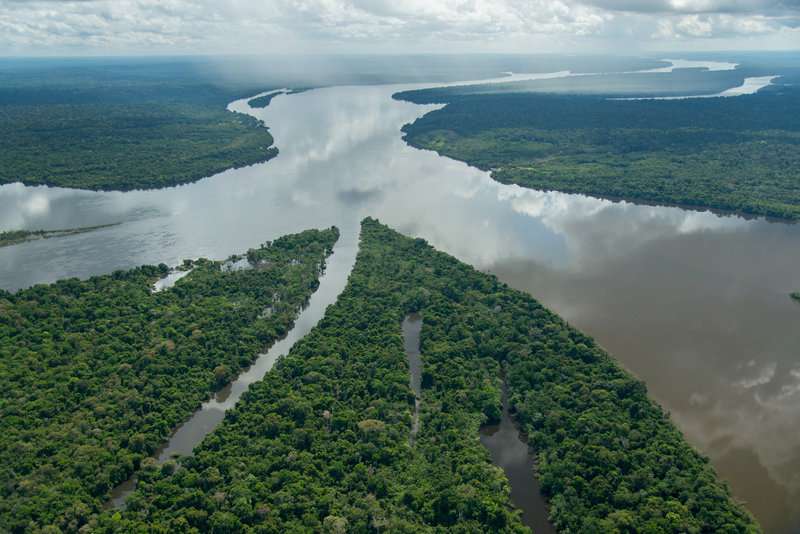Credit: Mato Grosso, Amazonas, Brasil Zig Koch / WWF
Brazil's protected areas (Pas) such as the Amazon and Caatinga are known globally for the incredible biodiversity treasures they hold. In 2016, there were approximately 17 million visitors in Brazilian protected areas and according to a new study published this week, greater investment in the environmental management of these areas could help yield even more economic gains for the country.
The book Quanto Vale o Verde: A Importância Econômica das Unidades de Conservação Brasileiras (broadly translated as "How much is green worth: the economic importance of Brazil's protected areas"), published by Conservation International (CI-Brazil) in partnership with the Federal University of Rio de Janeiro (UFRJ) and the Federal Rural University of Rio de Janeiro (UFRRJ) and partially funded by WWF, shows how protected areas could help generate revenue and employment opportunities for people and Brazil's national economy.
The study outlines the potential contribution of protecting green areas to the national economy in terms of the benefits from the actual or potential provision of goods and services by Brazil's PAs across all regions and biomes in 2006-2016. These include forest products, public use of protected areas, carbon stocks, water production, soil protection, and tax revenues at the municipal level.
According to the study, timber, the primary extractive product in Brazil, generated more than R$ 1.8 billion in revenue in 2016. In the case of non-timber products, acai, increasingly being acknowledged as a 'power food' worldwide, saw its production increase by 112 per cent between 2006 and 2016, while Brazil nut production increased by 20.4 per cent during the same period. In the water, fishing brought in an estimated total of R$ 621,5 million for fishery products including fish, shrimp and crab.
The contribution of PAs toward avoiding carbon emissions was also calculated as part of the study. Estimates show that new PAs in Brazil helped prevent total emissions of 10.5 GtCO2e, which is equivalent to 4.6 times Brazil's gross emissions in 2016.
According to the leader of the WWF Forests Initiative, Marco Lentini, the study is a landmark step toward recognizing the importance of protected areas for the well-being of Brazilian and global society. "Not only from an environmental point of view—the role of these areas in retaining greenhouse gases, regulating the climate and conserving water resources is extraordinary—but also from an economic point of view, since products like wood, chestnut and tourism can become an important source of sustainable income for the populations of the Amazon. We need to see protected areas as an important component of social, economic and environmental development and fundamental for the future of the country," he said.
The study also shows that Brazil is currently missing out on sustainable business opportunities from its PAs due to a lack of investments in environmental management. The period 2001-2014 saw a slight upward trend in environmental spending by the Federal Government, but since 2015 there has been a dramatic reduction in funding.
Budget cuts have affected environmental management more significantly than the average for other sectors of the Federal Government. For example, the Ministry of the Environment's budget was virtually stuck at R$ 1.2 billion in 2005-2013 while expenditures of other federal agencies increased significantly. The budget cuts affecting environmental management agencies (ICMBio and IBAMA) now compromise key services provided by these agencies, such as monitoring deforestation in the Brazilian Amazon.
At the release of the book, vice president of Conservation International and Professor at UFRRJ Rodrigo Medeiros, who also led the initiative, underlined the need for awareness on the role of protected areas and how they must not be seen as a hindrance to economic and social development. "The false dilemma of the hindrance lives on due to the significant lack of systematized data and information on the real role of Protected Areas in providing goods and services that contribute either directly and/or indirectly to the economic and social development of Brazil. We intend to use insights from this study to inform this discussion."
Provided by WWF






















